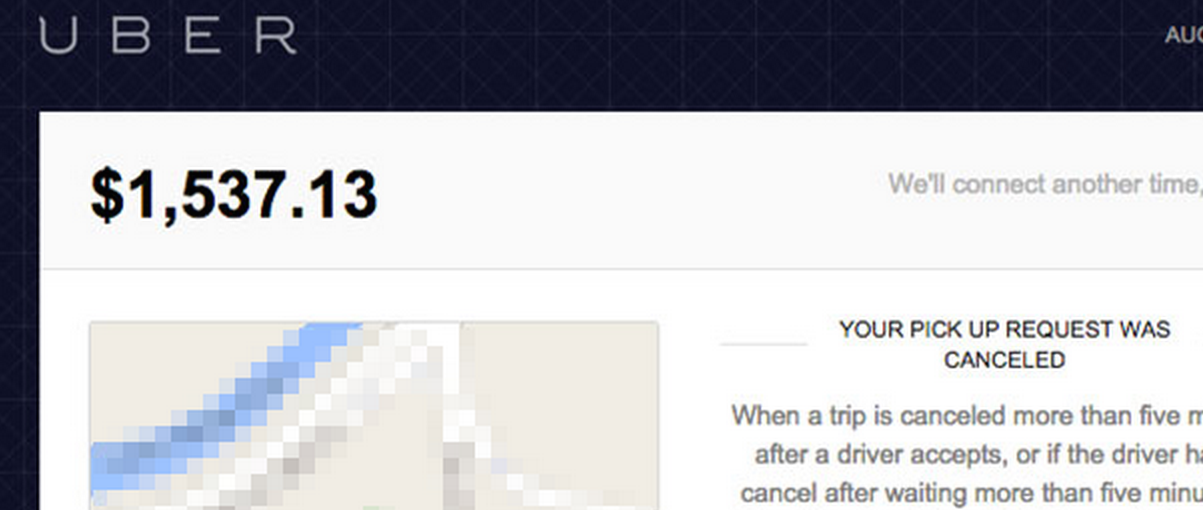Uber Debits $1,537 From Passenger’s Checking Account For 6-Day Ride That Didn’t Happen

(via ARLnow.com)
The woman tells ARLnow.com that she hired an Uber car on Aug. 8 to take her a few miles across town to a friend’s house. Six days later, she fired up the Uber app on her phone to hire another car only to find that she was still considered as being “on a trip.”
She canceled that trip, which was obviously an error as she hadn’t been cruising the streets of Northern Virginia in the back of an Uber car for the better part of a week. Then she got the e-mail receipt: $1,536.13 plus the $1 “safe driver” fee, of course.
Making matters more complicated, her Uber account was linked to her PayPal account, which linked directly to her checking account. Thus, the money was gone and getting it back wasn’t going to be easy.
Given the obviousness of the error, the passenger figured it would be easy to get a refund. Not so.
“I’ve tried to reach out to Uber via email about eight times and have heard nothing,” she told ARLnow. “And when I try and log in to Uber it now says my account has been disabled.”
Oh, and she’s set to go to closing on a house — tomorrow — and needs every penny she has for that down payment check.
It wasn’t until after ARLnow contacted Uber that the customer was able to get a refund, but intervention by the media should not have been necessary.
When contacted by Consumerist, the company would only say that a “technical error” is to blame for the huge overcharge, and that Uber is continuing to investigate to prevent something similar from happening again.
Want more consumer news? Visit our parent organization, Consumer Reports, for the latest on scams, recalls, and other consumer issues.

